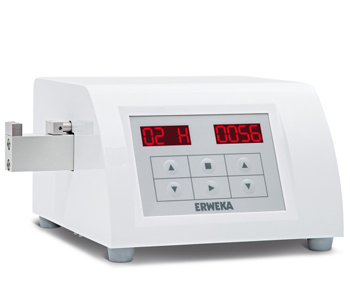
Tablet hardness testers can provide critical information about the structural integrity of a sample, but they can also contribute to other areas of analysis and manufacturing within the pharma processing order too.
It’s a safe bet that if a particular batch of samples fail when passed through the tablet hardness testers, that same batch will also show anomalies during disintegration and dissolution tests as well. This not only gives a heads up before the other tests are carried out, but also provides important data that can contribute to correcting the problem.
Low hardness results will allow manufacturing process to be adapted as necessary. For example, if a batch of samples fails when subjected to the tablet hardness testers, the results can be used to alter the compression of the tablet presses, adapt ingredients and aid in R&D studies. All of this from a single set of results gleaned from tablet hardness testers.
The wide application of the results only goes to serve as proof of how valuable an asset tablet hardness testers are in the pharma laboratories, so keeping them in tip-top condition is crucial. Although they can produce results quickly and quite easily (it is a simple test in essence), they still require calibration and maintenance in accordance with pharmacopoeia guidelines to ensure they produce accurate results with every output.
How can I keep my Tablet Hardness Testers in good condition?
Fear not, Total Laboratory Services Ltd can help you! we have many years experience calibrating, installing, servicing and repairing tablet hardness testers, so we can easily spot the signs of wear and tear, eliminating unforeseen breakdowns, and maintaining your machines ability to perform its analysis correctly. There is very little we don’t know about hardness, so please give us a call to see how we can help. You can buy new equipment from us too, as we’re the only UK agent for ERWEKA, who have been making tablet hardness testers and other lab equipment for over half a century.